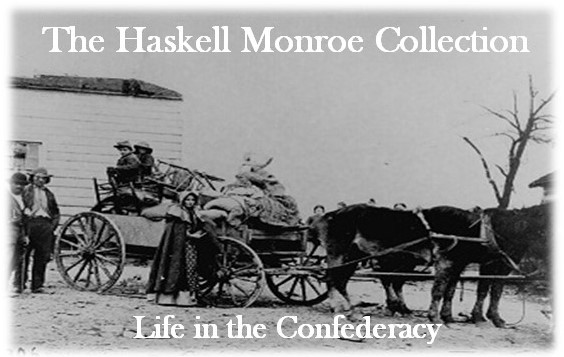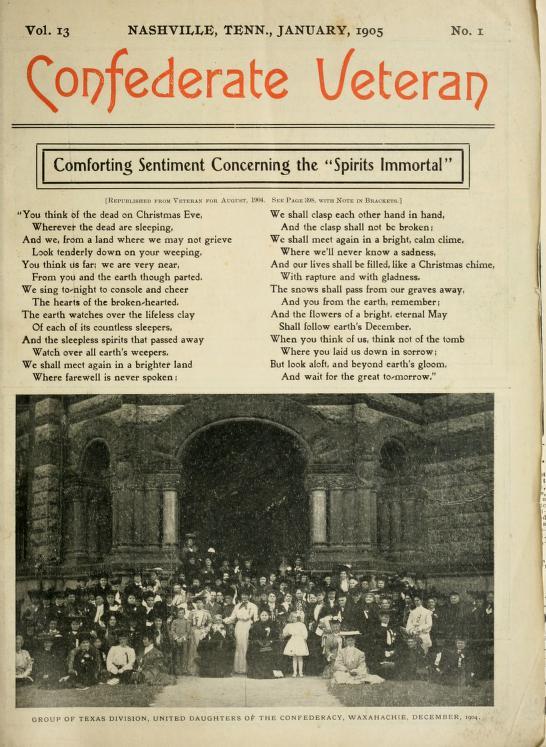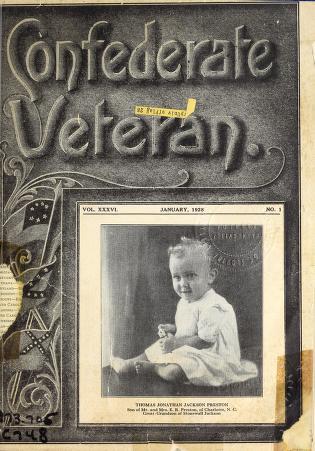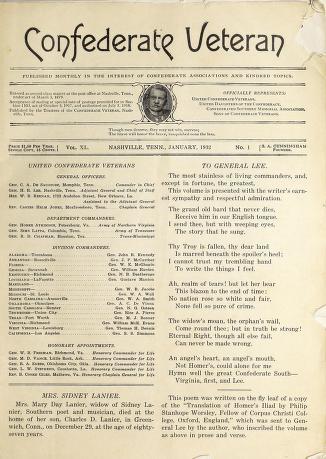"One of the Five Greatest Sieges of all History:" Vicksburg
Vicksburg (1863):
A major turning point in the war, the Siege of Vicksburg (May-July, 1863), granted the Union Army control of the Mississippi River, a significant defeat for Confederates. The following articles from the Confederate Veteran reflect the difference in tone between Union and Confederate victories, as seen on the previous page. Rather than a boastful approach to recounting the siege's events, the articles instead reflect concession and smaller internal victories for the Confederates.
"Notice to President Davis of His Election"
Confederate Veteran v.13 (1905)
While not an account of the Seige of Vicksburg, this article discusses the attitude in the area following the election of Jefferson Davis, who lived just south of Vicksburg. The article describes "widespread excitement and rejoicing" and sets up Vicksburg's loyalties in the war.
"The City of Vicksburg"
Confederate Veteran v.36 (1928)
Written by a member of the United Daughters of the Confederacy, this article talks about the impact of the Seige of Vicksburg on the city and the end of the war. Balancing the Lost Cause narrative, it promotes the role of school children and women in the preservation of war memory.
"Courtesy in War"
Confederate Veteran v.40 (1932)
While in Vicksburg, General Grant temporarily lived at the Govan family's home, who were Confederate sympathizers. The article discusses how the Grant and Govan families ate dinner together and cohabitated during Vicksburg's siege.
Questions to Consider:
In the article "Notice to President Davis of His Election," Jefferson Davis is referred to as "Col. Davis," "Hon. Jefferson Davis," and "fellow-citizen," but not Senator, his last official title before becoming the President of the Confederacy. Why? What is the author attempting to portray by using these three honorifics?
How are the Govan family and their actions described, what does this promote about Southern culture and why would that be important for the Lost Cause narrative?
In the article "The City of Vicksburg," why is education important in preserving war memory? And who's war memory is it?



